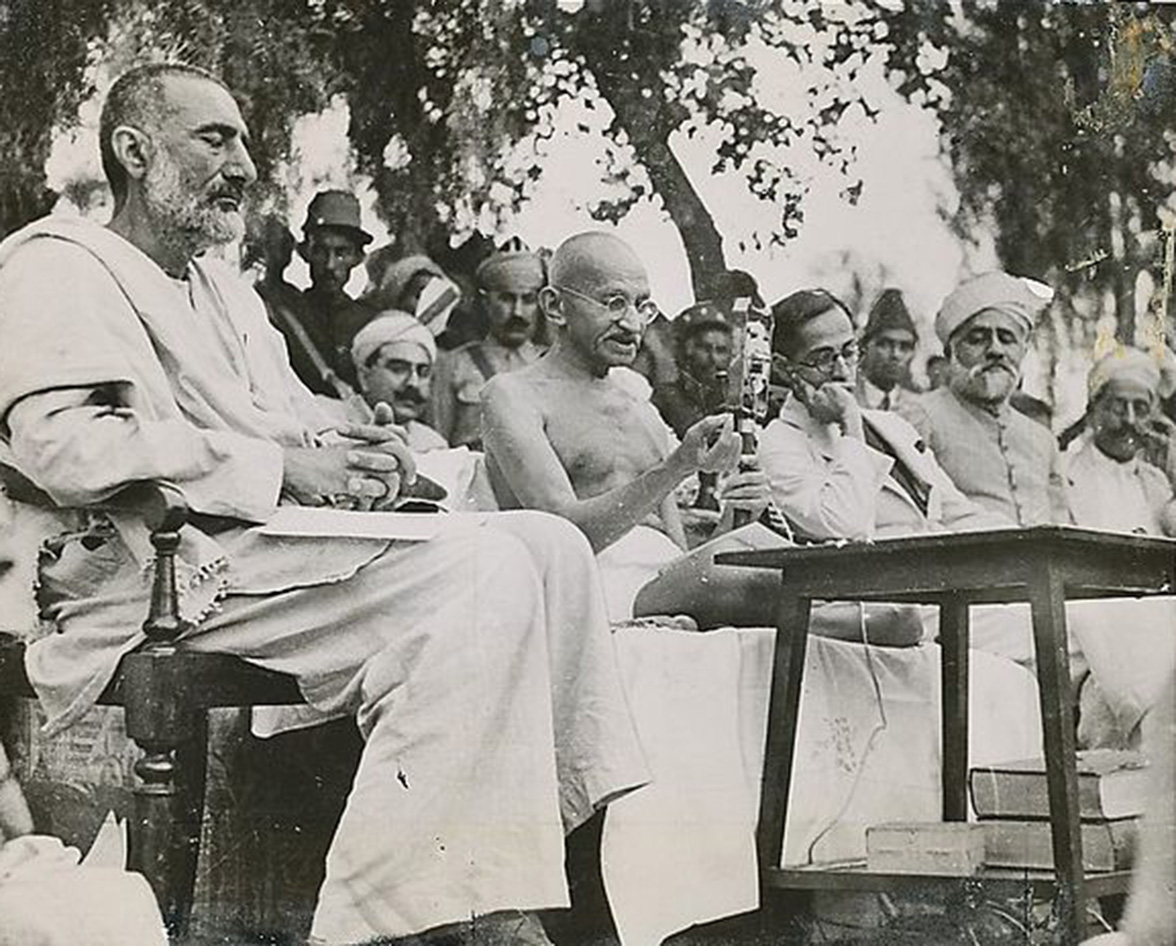
In the annals of history, certain figures emerge whose unwavering commitment to justice and peace transcends borders and ideologies. Abdul Ghaffar Khan, affectionately known as Bacha Khan, stands as one such luminary. His life story, marked by relentless resistance against oppression and division, illuminates the dark corners of Pakistan’s troubled past and exposes the systemic failures that continue to plague the nation.
Born on February 6, 1890, in a privileged Pashtun family in the heart of British India, Bacha Khan’s upbringing instilled in him a profound sense of duty towards his people and his nation. His journey towards becoming the “Sarhadi Gandhi” – the Frontier Gandhi – was paved with the principles of non-violent resistance and social reform, ideals he shared with his close ally, Mahatma Gandhi.
Bacha Khan’s vision for a united India, free from the shackles of communalism, set him at odds with the proponents of the Muslim League and their divisive demand for a separate Muslim state. He foresaw the calamitous consequences of partition – the fracturing of the subcontinent and the unleashing of sectarian strife. In the 1920s, Bacha Khan founded the Khudai Khidmatgar movement, a beacon of hope in the tumultuous landscape of British India. The Red Shirts, as they were colloquially known, became an army of peaceful warriors, dedicated to the noble cause of social justice and independence. Through their tireless efforts, they challenged the hegemony of colonial rule and inspired a generation to rise against tyranny.
But Bacha Khan’s unwavering commitment to a united India came at a cost. As the clouds of partition loomed large, he found himself marginalised in the newly formed state of Pakistan, where his dissenting voice was deemed a threat to the fragile narrative of nationhood. The betrayal he felt at the hands of the Indian National Congress (INC), whom he accused of abandoning him to the wolves of partition, echoed the sentiments of millions who found themselves uprooted and displaced in the wake of India’s partition. His impassioned plea for the North-West Frontier Province and the Federally Administered Tribal Areas to remain part of India fell on deaf ears, as the architects of partition pursued their myopic vision of nationhood at any cost.
However, Bacha Khan’s defiance did not end with the creation of Pakistan. Throughout his life, he remained a thorn in the side of the Pakistani establishment, challenging their authoritarian rule and advocating for the rights of the Pashtun people. His steadfast opposition to Pakistan’s ‘One Unit’ mission, which sought to strip the provinces of their autonomy, earned him the ire of those in power and led to his repeated imprisonment and exile.
The Pakistani authorities, threatened by Bacha Khan’s unwavering resolve, employed every means at their disposal to silence him. They imprisoned him without trial, harassed his followers, and sought to erase his legacy from the pages of history. But try as they might, they could not extinguish the flame of resistance that burned within him.
Bacha Khan’s legacy extends far beyond the borders of Pakistan. In India, he is revered as a champion of peace and non-violence, whose teachings continue to inspire generations of activists and freedom fighters. Yet, despite his towering stature in India, Bacha Khan remains a marginalised figure in Pakistan, relegated to the footnotes of history by a state that fears his message of unity and equality. The Pakistani establishment, blinded by their narrow vision of nationhood, failed to recognise the inherent value of Bacha Khan’s ideals and instead chose to suppress them with brute force.
Today, as Pakistan grapples with the consequences of decades of authoritarian rule and sectarian violence, Bacha Khan’s words ring truer than ever. His warning that Pakistan was being thrown to the wolves has been borne out by the harsh realities of present-day Pakistan, where corruption, inequality, and injustice are rampant. The treatment meted out to Bacha Khan by the Pakistani authorities serves as a stark reminder of the state’s failure to uphold the values of democracy and human rights. His imprisonment and exile were not merely acts of repression but a concerted effort to erase his vision of a just and equitable society from the collective memory of the nation.
Undoubtedly, Bacha Khan’s life story stands as a testament to the enduring power of resistance and the indomitable spirit of those who refuse to bow to tyranny. His legacy serves as a beacon of hope for all those who continue to fight for justice and equality in the face of oppression. And his words, spoken in defiance of those who sought to silence him, echo down through the corridors of history, reminding us that the struggle for freedom is never in vain.
Pakistan has consistently persecuted those who expressed a desire to join India, and Abdul Ghaffar Khan is a prominent example of this ongoing oppression. Despite the relentless efforts of the Pakistani authorities to suppress his voice and vision, he remains a towering political figure who dedicated his life to the struggle for an independent Pashtunistan. His unwavering commitment to his cause and his courageous resistance against Pakistan’s authoritarian regime has cemented his legacy which translates into self-determination for the Pashtun people.